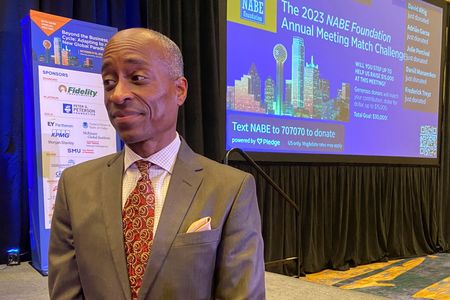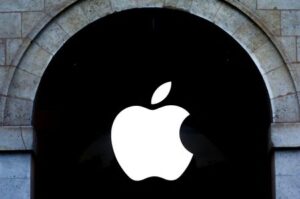By Howard Schneider
WASHINGTON (Reuters) – Federal Reserve Vice Chair Philip Jefferson, in remarks devoid of any mention of interest rate cuts, said on Tuesday “it will be appropriate to hold in place the current restrictive stance of policy for longer” if inflation fails to slow as expected.
“My baseline outlook continues to be that inflation will decline further, with the policy rate held steady at its current level, and that the labor market will remain strong, with labor demand and supply continuing to rebalance,” Jefferson said in remarks prepared for a speech to a Fed research conference in Washington.
“Of course, the outlook is still quite uncertain, and if incoming data suggest that inflation is more persistent than I currently expect it to be, it will be appropriate to hold in place the current restrictive stance of policy for longer. I am fully committed to getting inflation back to 2%.”
His comments did not include what has been a standard messaging point for Fed officials in recent months that rate cuts could begin once policymakers gained more confidence that inflation is still falling – a hurdle that’s become steeper after inflation through the first quarter proved unexpectedly strong.
On Feb. 22, for example, Jefferson said “if the economy evolves broadly as expected, it will likely be appropriate to begin dialing back our policy restraint later this year.”
His remarks on Tuesday noted that while the baseline remained for inflation to slow, “inflation data over the past three months were above the low readings in the second half of last year,” while job growth and retail spending remained stronger than expected.
“While we have seen considerable progress in lowering inflation, the job of sustainably restoring 2% inflation is not yet done,” Jefferson said in his prepared remarks.
March, in fact, may prove another lost month for the Fed.
Jefferson said that staff estimates indicate the personal consumption expenditures price index, which the Fed uses to set its 2% inflation target, increased at a 2.7% annual rate in March, faster than in February. The “core” rate excluding food and energy prices is estimated to have increased at a 2.8% rate, unchanged from the prior month.
The bulk of Jefferson’s prepared remarks were devoted to a historical review of how policymakers deal with uncertainty, with just three paragraphs on the “current situation.”
Fed Chair Jerome Powell is scheduled to field questions during an event in Washington at 1:15 p.m. EDT (1715 GMT) on Tuesday.
(Reporting by Howard Schneider; Editing by Paul Simao)





